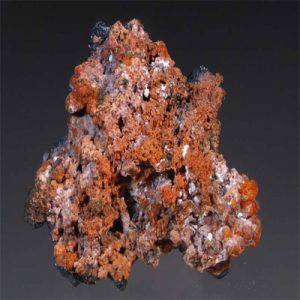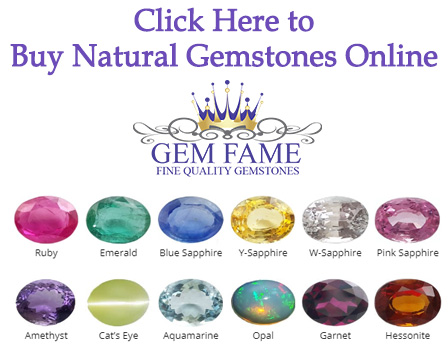Durangite
Durangite is named for the type locality at the Barranca mine in the Durango state of Mexico. Durangite occurs in veins of alkalic rhyolite and tin placers that were derived from alkalic rhyolites and in pegmatite dikes through granite. Durangite is an extremely rare gem. Durangite crystals are found in colors of pale to dark red-orange, deep red, orange, orange-brown and pale yellow. The two most notable occurances for possible gem quality crystals are the Barranca tin mine, about 30 km northeast of Coneto de Comonfort, Durango, Mexico and in the Thomas Range, Juab County, Utah.
Other Durangite locations are near Lake Ramsey, New Ross, Nova Scotia, Canada; in tin prospects near Boiler Peak, in the Black Range, Sierra County, New Mexico, USA; at the Cheesewring quarry, Linkinhorne, Cornwall, England.
| Chemical Formula: | NaAl(AsO4)F |
| Sodium Aluminum Arsenate Fluoride | |
| Molecular Weight: | 207.89 gm |
| Composition: | Sodium | 11.06 % | Na | 14.91 % | Na2O |
| Aluminum | 12.98 % | Al | 24.52 % | Al2O3 | |
| Arsenic | 36.04 % | As | 55.28 % | As2O5 | |
| Oxygen | 30.78 % | O | |||
| Fluorine | 9.14 % | F | 9.14 % | F | |
| — % | F | -3.85 % | -O=F2 |
| Crystallography: | Monoclinic – Prismatic |
| Crystal Habit: | Typically in euhedral oblique pyramidal crystals, to 1 cm, slightly elongated along [001], with dominant {110}, {111}, and {010}, {100}, {021}, faces commonly dull and rough; in stacked aggregates. Artificial crystals are prismatic [101], and rarely tabular. |
| Twinning: | On {001} common as interopenetration twins (artificial crystals). |
| Cleavage: | Distinct on [110] |
| Fracture: | Irregular/Uneven to Conchoidal |
| Tenacity: | Brittle |
| Moh’s Hardness: | 5.0 – 5.5 |
| Density: | 3.90 – 4.07 (g/cm3); Density is highest in dark-coloured, ferrian material. |
| Luminescence: | None |
| Radioactivity: | Not Radioactive |
| Color: | Pale to dark red-orange, deep red, orange, orange-brown, pale yellow; in transmitted light, color zoned from varying contents of Fe and Mn. Green color exhibited by artificial material. |
| Transparency: | Transparent to Opaque |
| Luster: | Vitreous, usually dull |
| Refractive Index: | 1.634 – 1.685 Biaxial ( – ) |
| Birefringence: | 0.051 |
| Dispersion: | Strong, also weak to moderate; r < v, less commonly r > v |
| Pleochroism: | X = yellow-orange; Y = pale yellow-orange; Z = nearly colorless. |


